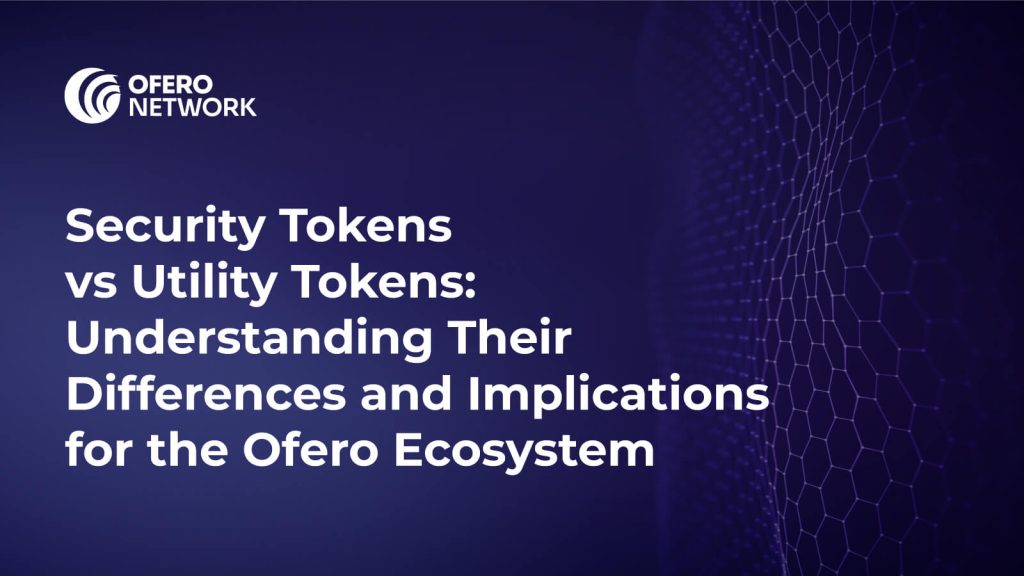Written by: Alexandru Părăușanu
Continuing the series of informative articles, in line with one of the principles governing OFE, namely transparency, in this material we aim to present the main differences between “security token” and “utility token”.
In light of the provisions of MiCA, which we discussed in the previous article, and the reality that blockchain easily encompasses every facet of everyday life, terms such as “tokenizing the economy” have become commonplace.
The differences between a utility token and a security token, however, are important both from the perspective of understanding the real world value that the token brings to holders, but also from a legal perspective.
A security token is a token that can be traded, the name being obviously derived from the stock market, where fungible assets with monetary value can be traded.
From this perspective, a security token can represent an interest in a company, i.e. a share, which entitles investors to vote, to receive dividends but also creates an obligation for the security token issuer to inform holders about the company’s financial statements and its performance. From this perspective, the security token behaves just like a share on the traditional regulated markets. The advantage of using security token is that the holders have a direct stake in the issuing company, raising funds is much easier for the issuer and widely accessible to the public, while being fully transparent – thanks to blockchain technologies. Also, dividends can be more easily distributed to holders all over the world by issuing new tokens to holders, not only making the process more efficient, but also cutting the middle man out of the equation.
In the US market, regulation of this type of token is done through the Howey Test, which imposes various criteria to determine whether the token is a security or not.
Of course, the burden of obligations that such a token must meet is significant, and a decision regarding European issuers and investors is likely to be delayed, with regulators awaiting a decision in the Ripple vs SEC case, where it is to be determined under what conditions a cryptocurrency can be a security.
At the moment the Council of Europe has determined that tokens with economic value other than stable-coins will have the generic designation “crypto-asset”. From this perspective, the regulation is easier, with fewer obligations on crypto-asset issuers and, we believe, in line with the current cryptocurrency market.
As far as the utility token is concerned, it is in fact a voucher that the issuer of a project can use to build customer loyalty and provide benefits to consumers of its products. The utility token therefore complements the core business of an entity and has many advantages, both logistically and economically.
Firstly, issuing vouchers in virtual form presents significant cost savings in the production process and it is also very easy to track the validity and authenticity of these vouchers, with blockchain making the process secure for all participants.
Secondly, the use of tokens in business has many advantages in customer loyalty, with consumers looking to gain economic benefits through rewards by using this token.
From a legal point of view, MiCA establishes that a utility token has no financial purpose, the purpose of the token being to facilitate access to a digital service or good. A key point in the definition in Art. 3 para. (5) is that the utility token can only be accepted by the entity issuing it. Thus, tokens can only be used within the project or at the issuer using the technology.
Conclusion
While both tokens provide great utility it is important for both the issuer and investors to understand the differences between them, as both the rights and obligations of users vary greatly and can impact their financial health.

